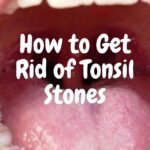Hemoglobin is a vital component of the body. The protein in red blood cells (RBCs) carries oxygen from your lungs to all of your tissues and organs. The abnormal hemoglobin structure or levels can therefore result in serious symptoms.
A hemoglobin abnormality may cause fatigue, rapid heartbeat, pale skin, and more. A doctor may order a hemoglobin test for you if you have any of these problems.
Structure
A hemoglobin molecule is made up of four amino acid chains. Iron is found in them and they transport oxygen through the body through heme.
An RBC’s shape is determined by hemoglobin, which is shaped like a donut but with a thin center rather than a hole. If the RBCs are shaped abnormally, such as in sickle cell anemia, problems can arise.
Function
All of the tissues in the body receive oxygen from the capillaries of the lungs through hemoglobin. Furthermore, it transports carbon dioxide from body tissues back to the lungs.
Hemoglobin can bind to both nitric oxide and carbon monoxide. Oxygen cannot bind to hemoglobin when carbon monoxide is present. It is for this reason that carbon monoxide poisoning is so serious.
Low Hemoglobin Condition
Anemia is often referred to as a low hemoglobin level. Anemia can be caused by anything that impairs hemoglobin or red blood cells.
Low hemoglobin can be caused by:
- Blood Lose – Bleeding can be caused by surgery, heavy menstrual periods, bleeding in the digestive tract, or any other cause. The menstrual cycle lowers the hemoglobin level of premenopausal women.
- Lack of Production – The bone marrow may produce fewer cells due to certain diseases, such as bone marrow failure (aplastic anemia), or as a result of cancers, such as leukemia, lymphoma, or solid tumors, such as metastatic breast cancer.
- Hemolysis (breakdown of RBCs) – As a result of severe infections, toxins, or malaria, blood cells may become hemolyzed.
- Nutritional Deficiency – Deficiencies of iron, B12, and folate can cause anemia.
- Kidney Disease- Erythropoietin is released by healthy kidneys and promotes RBC synthesis.
Elevated Hemoglobin Condition
Elevated hemoglobin levels are associated with the following conditions:
- Diseases of the lungs, such as COPD and pulmonary fibrosis.
- A congenital (present at birth) heart condition.
- Heart failure of the right side (cor pulmonale).
The body compensates for low oxygen by increasing hemoglobin in these cases. Dehydration can result in an artificially elevated hemoglobin level. When body fluid levels are low, hemoglobin concentration is higher. High oxygen content in the atmosphere can also raise hemoglobin levels at high altitudes.
Abnormal Hemoglobin
Among the conditions in which hemoglobin has an abnormal structure are:
- Sickle Cell Anemia – A sickle-shaped red blood cell is the result of abnormal hemoglobin. This can lead to pain, blood clots, and increased stroke risk.
- Thalassemia – Different types of abnormal hemoglobin are seen in these hereditary diseases. Alpha thalassemia and beta-thalassemia are both disease types that can vary in severity.
Thalassemia patients often require frequent transfusions and have lifelong anemia. The condition is also known as “non-transfusion dependent thalassemia” and may not be noticed until adulthood.
Evaluating Hemoglobin Level
Complete blood counts (CBC) usually measure the hemoglobin level. Hemoglobin problems may also be diagnosed by the results of other lab tests. Some of these include:
- Count of RBCs
- MCHC (mean corpuscular hemoglobin concentration), MCH (mean corpuscular hemoglobin), and MCV (mean corpuscular volume) are indices of Red Blood Cells.
- Serum ferritin measures the body’s iron stores.
Source – verywellhealth.com/importance-of-hemoglobin-2249107



